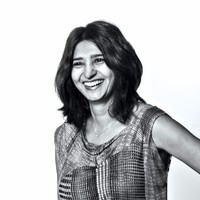- Are you striving to contribute to local sense-making through research?
- Are you interested in science education research?
- Do you need to interact with and study teachers' or students' learning and development in the actual learning situation – i.e. in the natural context?
If the answer is yes, then NiSE invites you to the "Field Experiments" workshop on June 24th from 1:00 PM to 4:00 PM at UCL in Seebladsgade 1, Odense C.
The workshop will provide participants with the basic knowledge to include randomized controlled trials (RCTs), also known as field experiments, as part of the methods in the research toolbox.
We will explore how we can use the "Field Experiments" method in the field of science education. We do this together with an expert in the field, Sofia Bapna, whom we have brought to Denmark for this purpose. Through practice experiments, it is possible to actualize school research, and if we work strategically and reflectively with the method, it can contribute to the development of professional identity with an updated perspective on STEM in schools.
The high-level agenda for the 3-hour session
- What is a field experiment?
- Why do we need field experiments to inform innovation and policy change?
The steps in conducting field experiments:
1. Formulating a question suitable for a field experiment
2. Designing the trial – identifying participants, identifying interventions, identifying outcomes, determining sample size, randomizing.
3. Preparing for implementation – pre-registration, ethical considerations (IRB), GDPR
4. Implementing the experiment
5. Analyzing the data and reporting
- Transforming to your contexts. How does the method apply in your contexts?
The workshop will be conducted in English. Below you find Sofia Bapna's description of what RCTs are, how to design RCTs, how to use them, and what you get out of them.
Sofia Bapner's presentation
This NiSE workshop is targeted at academic researchers. It will provide foundational knowledge for them to include randomized controlled trials (RCTs), also called field experiments, as part of the methodologies in their research toolkit. In an RCT, participants are randomly assigned to two or more groups. One or more groups receive interventions (treatment groups), and one group is not given an intervention (control). Real world outcomes for the control and treatment groups are then compared. Examples of a RCT might include testing the effects of a new teaching method – e.g. in science education – in actual classrooms. Following the randomized introduction of the intervention, one would assess the impact of the intervention on student learning, engagement, or other outcomes of interest. I will provide some examples from existing research, of designing RCTS for such interventions. Unlike laboratory experiments, field experiments are conducted in real-world situations, participants are in their naturally occurring environments, and participants are often not aware that they are part of a study; this allows researchers to study behavior/outcomes in a more realistic way. Moreover, field experiments help overcome some of the possible concerns with lab experiments or the use of observational data such as selection bias (results affected by the sample or those participating in the study), omitted variable bias (results are due to a variable that is not considered), actor observer bias (results affected by participants knowing that they are participating in a study) etc. Importantly RCTs allow for making causal claims (i.e., one is able to determine if a certain intervention actually causes a certain outcome. The randomized controlled field experiment is a method that is used in all fields e.g, development economics, sociology, business, education etc. I will talk about the method broadly; the faculty attending the workshop can take the method and apply it in their context.
There is room for 16 participants in the workshop, so sign up quickly if you want to secure a seat.
Organizers of NiSE Workshops:
Connie Svabo, Professor and Head of Center, FNUGMartin Krabbe Sillasen, Head of Research and Deputy Center Manager, CESE/NAFA
Gitte Miller Balslev, Associate Professor, FNUG
